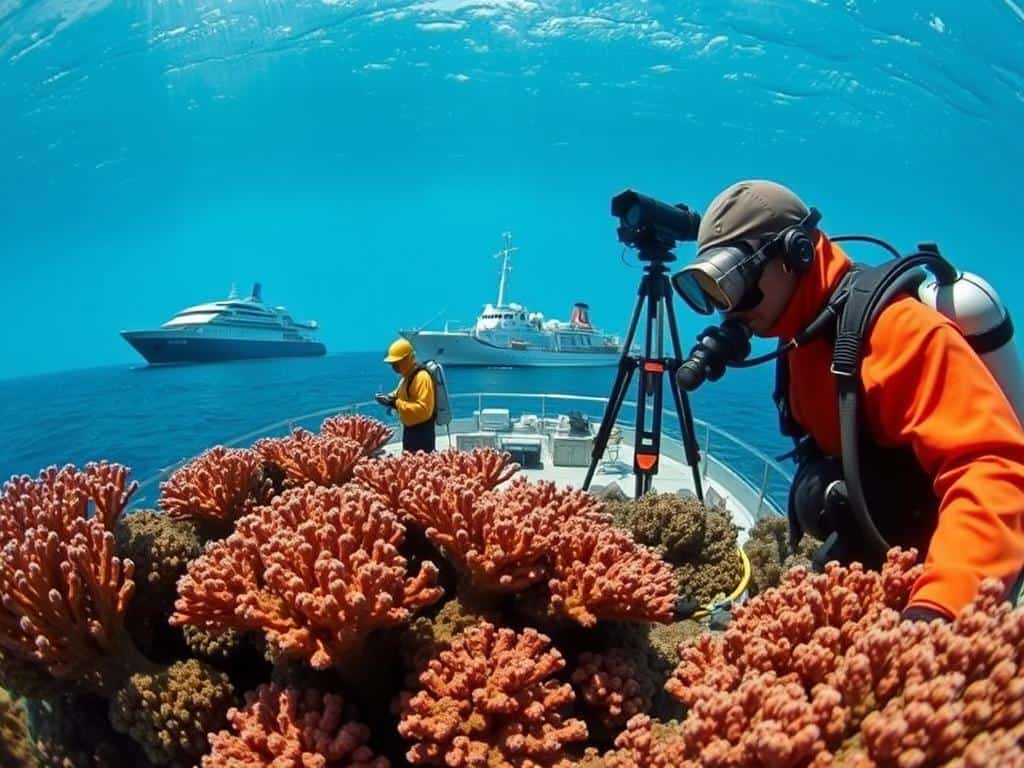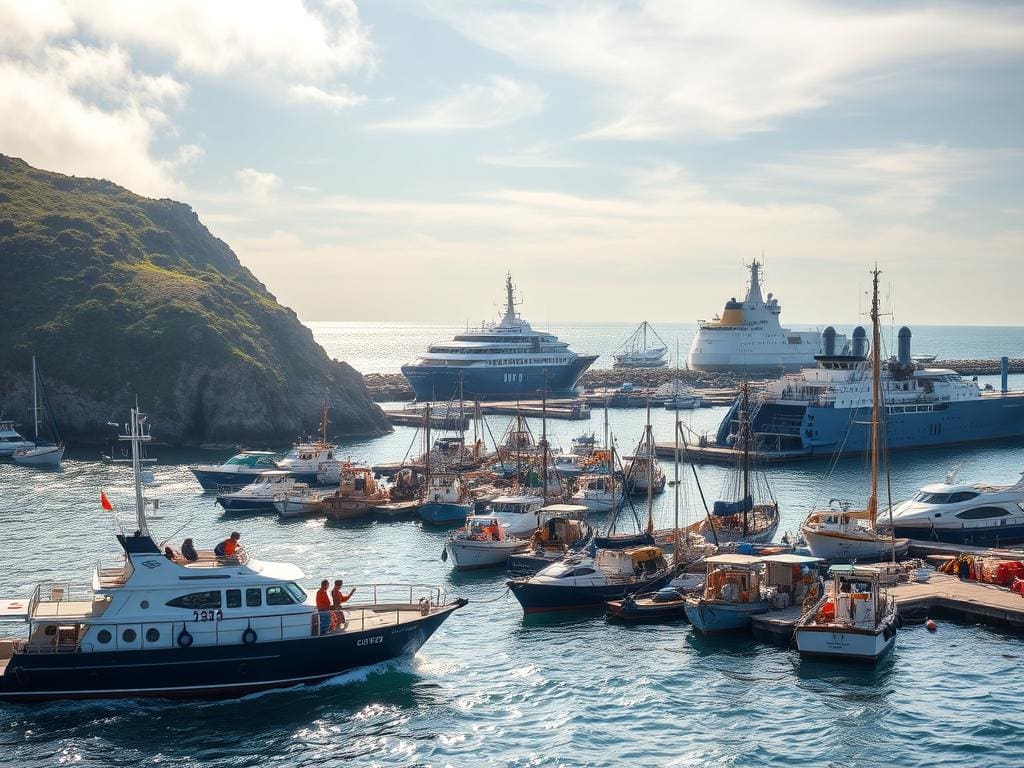Growing up near the coast, I spent countless summers watching the waves crash against the shore. Each tide brought new discoveries, like vibrant sea creatures and delicate marine ecosystems. This sparked my passion for the ocean, leading me to explore marine careers.
The fields of ocean professions are vast and vital. Over 70% of our planet is water. With challenges like climate change and pollution, marine science professionals are shaping our planet’s future.
Working as an oceanographer or an aquatic educator is exciting and critical. These jobs help keep our oceans healthy. They allow people to combine passion with purpose.
Key Takeaways
- Marine careers are essential for ocean conservation and health.
- There are diverse opportunities in ocean professions, from research to education.
- Working with the ocean allows for a meaningful and impactful career.
- Understanding marine environments fosters a connection with nature.
- Every role in marine sciences contributes to our understanding of global challenges.
Exploring Marine Careers: Diverse Opportunities in Ocean Professions
As I explore marine sciences, I find a wide range of jobs in ocean professions. This field includes many roles that help us understand and protect our oceans. Each job is important for keeping marine ecosystems healthy and sustainable.
Overview of Marine Sciences and Job Roles
Marine sciences give us a deep look into the ocean’s complex world. Jobs in this area include marine biologists, oceanographers, and conservation scientists. Marine biologists study sea creatures, oceanographers look at water quality and climate impacts, and conservation scientists protect marine habitats.
Different Fields of Marine Careers
Marine sciences offer many career paths, like fisheries management, marine education, and environmental consultancy. Fisheries managers work to keep fish populations healthy. Marine educators teach about ocean conservation to future generations. Environmental consultants check how coastal projects affect marine life, promoting eco-friendly practices.
Skills and Education Required for Marine Careers
To succeed in marine careers, it’s key to develop certain skills and follow the right educational paths. A solid base in marine sciences is vital for those aiming to make a difference in ocean-related fields.
Essential Skills for Success
Critical thinking and analytical skills are vital for grasping complex marine environments. Observational skills help spot patterns in marine life and ecosystems. Problem-solving is essential for tackling unexpected challenges.
Effective communication skills are also critical. They allow professionals to share research findings and work well with teams. These skills are the foundation for both personal and professional growth in marine careers.
Educational Pathways
Starting a marine sciences journey often involves getting a bachelor’s degree in marine biology, oceanography, or related fields. Many roles require more education, like master’s degrees or doctorates, for specialized positions. Internships or hands-on experiences enhance learning and build expertise.
Fields like marine archaeology or environmental policy might need extra qualifications. This shows the wide range of opportunities in marine careers.

Conclusion
Choosing a career in marine sciences is more than a personal choice. It’s a key step in tackling our planet’s biggest ecological problems. With many roles in government, academia, and private industry, marine careers let people find their passions and make a difference.
Marine scientists tackle big issues like climate change, pollution, and managing resources. This means more jobs for skilled ocean professionals. As I explore this field, I see how I can help protect our oceans and work towards a sustainable future.
Starting a marine career supports important sustainability efforts. It shows how marine experts are essential in keeping our oceans safe for the future. Together, we can make big changes and protect our marine resources for generations to come.



